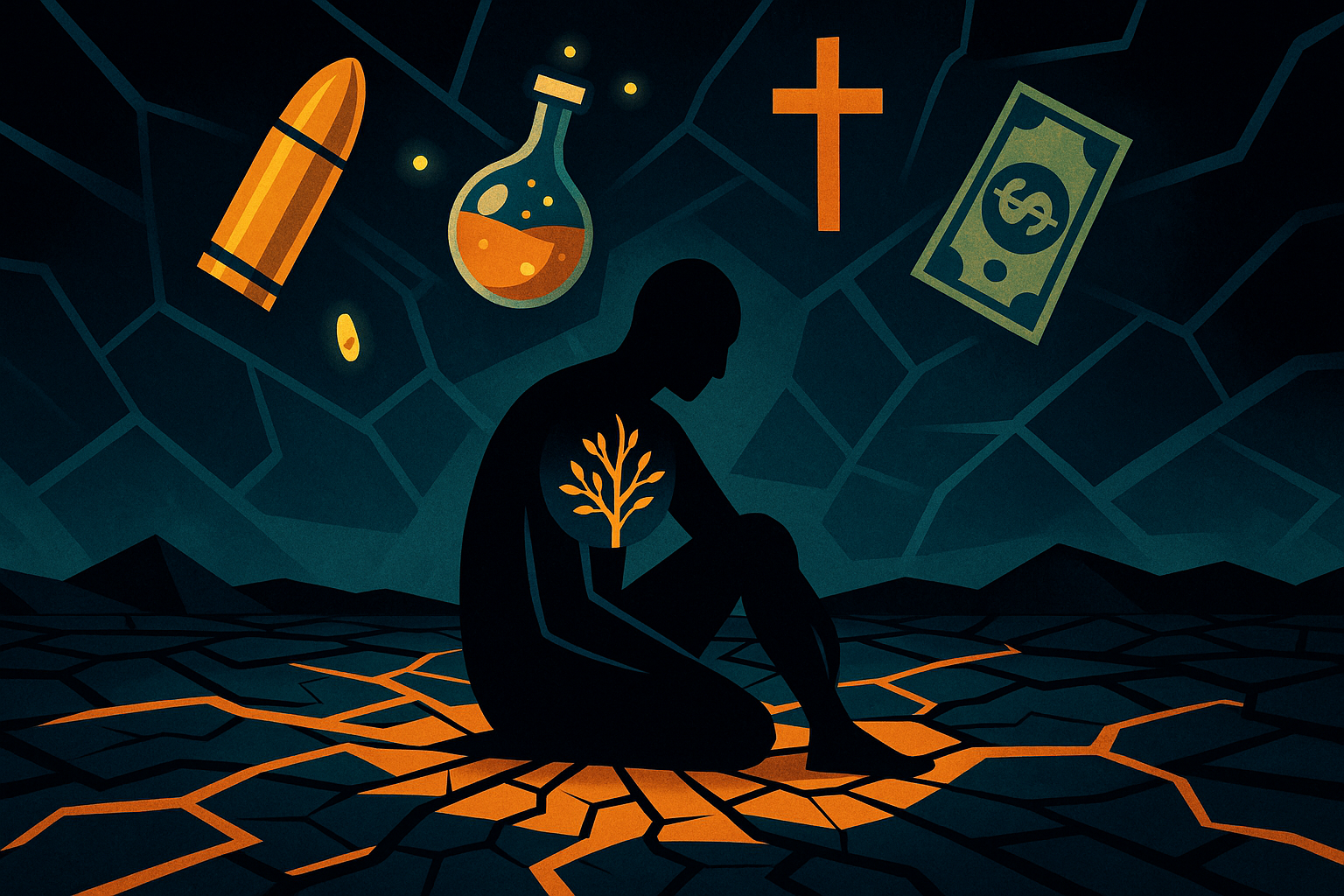READ IT TO ME: Click play to listen to this post.
“Our boundaries define our personal space–-and we need to be sovereign there in order to be able to step into our full power and potential.” – Jessica Moore
People who are in a relationship with addicts learn to read them like a book. However, oftentimes they deny what they see. For an addict, they don’t even see what is. The ominous cloud of relapse builds when both the addict and support ignore the obvious and embrace the improbable.
Ultimately, as an addict, you are responsible for reading the tea leaves in your life. No one else is responsible for recognizing high risk and managing it but you. Sometimes I hear addicts lament “I need a kick-ass therapist” or a “kick-ass sponsor”. I have learned that ultimately you have to be your own “kick-ass”. In life, we all must learn to be both steel and velvet. Typically, addicts tend to be gentle where they need to be steel and steel where they need to be gentle.
Reading the tea leaves means managing outside distractions that inevitably weigh lay recovery. There are many outside distractions. Hindrances to recovery require boundaries, both internal and external. In the beginning stages of recovery, addicts are in crisis. They gladly do anything to ease the discomfort and save themselves from the crisis they have created by acting out. Over time, the pain eases. That’s when outside distractions come into play. Addicts begin to fit recovery tasks around their lives rather than build their lives around recovery. It can be a subtle shift but it quickly becomes lethal to both sobriety and serenity. The list of outside distractions is many. I want to address one that seems subtle but is prevalent and stymies recovery growth while triggering relapse.
The pressure to function for others
Addicts who want to prioritize their recovery don’t get a pass for being responsible for the demands of everyday living. Those who have taken a break and went to rehab, face the demands of everyday life whenever they step back into their real world. There are family obligations, hopefully work pressures, and suddenly from a sequestered environment, they are faced with the immediate stress to function for others. Many addicts flip out right here.
The outside distractions to function for others who face addiction recovery are immense. Let’s talk about an important one.
Family
There are important family obligations. How do you reintegrate, particularly when your family is dysfunctional? You do that with boundaries, internally as well as externally. Caring for others will look different. In recovery, you must be in control of your life. This means removing toxic influences from your life, including family members. For some, you will need to distance yourself—lovingly but firmly. For others, you will need to practice saying no. It may feel awkward but “No” is a complete sentence. Without internal boundaries, you will lose yourself in the world that gobbled you up in the first place.
If you are in a relationship with a significant other, you both will need recovery support. After all, you did betray them and they have been traumatized by your behavior. Sometimes partners do not want support. The response is that it is your problem, fix it! Addicts are not the only ones who deny the obvious and embrace the improbable. Here’s the scenario. You just ran over your partner with a big Mac truck. It would not make sense for the paramedics to rush to the scene of the accident and pick up you, the driver, and then rush you to the emergency room of the hospital while leaving your partner, the victim, on the side of the road to figure out how to heal! But, that’s the reality when your betrayed partner refuses to accept treatment for the betrayal behavior. Yet, you cannot control your partner’s response. It becomes a distraction to your own recovery. You must practice letting go of your partner’s decision and continue practicing your own recovery.
There are many family dynamics that can become outside distractions to your addiction recovery. You will be required to establish boundaries to maintain sobriety.
Managing outside distractions can be messy. Your success in doing so will be the sum of small steps, repeated day in and day out. When you get out of balance, recalibrate, get back up, and re-balance your priorities. Ignore the temptation to judge yourself by daily results. Pay attention to the seeds of maturity that you are planting. You will become stronger and more resilient in the doing. There’s an old Buddhist proverb that says once you are facing in the right direction, all you have to do is keep walking. When things go wrong just don’t go with them. Make recovery first so that everything you love in life doesn’t have to come last.
Recovery is about living an authentic and meaningful life. You will need to practice the reality that there will be times when your recovery boundaries will disappoint and upset others. Sometimes people you care most about will feel hurt because of your boundaries. It will be important to learn to sit in the reality that some people will reject you and not accept your recovery life and boundaries. It won’t be easy, but it will be essential if you want your life to reflect and fulfill your deepest desires, values, and needs.





